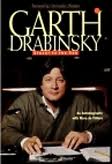 Garth Drabinsky was appalled that day in 1987 when he heard that publishers were about to bid at auction for the rights to an unauthorized biography of himself. Realizing that “a book filled with misstatements and misrepresentations and ignorant reporting of the facts would do me a lot of harm,” he quickly took strong evasive action by announcing plans to write his autobiography. Naturally, the unauthorized project quickly collapsed.
Garth Drabinsky was appalled that day in 1987 when he heard that publishers were about to bid at auction for the rights to an unauthorized biography of himself. Realizing that “a book filled with misstatements and misrepresentations and ignorant reporting of the facts would do me a lot of harm,” he quickly took strong evasive action by announcing plans to write his autobiography. Naturally, the unauthorized project quickly collapsed.
Nearly eight years later, McClelland & Stewart has published Closer To The Sun, in which the powerful and accomplished Toronto-based entertainment mogul, dubbed “the Canadian Ziegfeld” by a New York writer,” tells his own story in some 500 pages, frankly and compellingly, revealing much about himself in the process.
Drabinsky’s career takes the shape of a high-powered corporate drama in three acts. Act One began when he teamed with Nat Taylor, his mentor, to build the 18-screen Cineplex in Toronto’s Eaton Centre in the late seventies. Over the next decade, he guided Cineplex Odeon through a period of meteoric rise during which it grew into a publicly-traded corporation worth $1.3 billion. In 1989, he was ousted as CEO after a ruthless corporate battle which saw him pitted against the giant U.S. media conglomerate MCA.
In retrospect, he claims the deal that forced him out of Cineplex has proven disastrous for shareholders, and that the company is worth about $550 million today, only one-third of what it could have been worth had he remained.
Act Two: Rising from the ashes, Drabinsky established the immensely successful Livent (Live Entertainment of Canada Inc.) The company has produced a string of lucrative hits in Toronto and on Broadway, including the Tony-award-winning Kiss of The Spider Woman and Show Boat.
As well, Livent’s productions of Phantom of the Opera and other Andrew Lloyd Webber musicals (soon to include Sunset Boulevard) have grossed almost $700 million to date. Among numerous other projects and concerns, Livent has bought the rights to E.L. Doctorow’s novel, Ragtime, for development as a musical, and sold about 700,000 Show Boat original soundtrack albums.
And Act Three? Only the future can tell. At 45, Drabinsky is still a young man.
Like his book, Garth Drabinsky in person is a lively and engaging study. He sits behind a large desk in an airy office decorated with several portraits of himself, art works by Jean Paul Riopelle and other artists, and a shelf on which his prized Tony and other awards sit.
On the windowsill is a framed photograph of him with Israeli foreign minister Shimon Peres, signed by the latter. Drabinsky defines himself as a “committed Zionist” who visits Israel at least once and sometimes several times each year; he has discussed bringing Phantom of the Opera to Tel Aviv’s new Opera House. (“I’ve urged Jerusalem to build a major theatrical facility, but they haven’t yet….”)
He has also become a strongly vocal advocate of freedom of expression, after withstanding what he calls “an outrageous, anti-Semitic assault” from elements within Toronto’s black community who unsuccessfully attempted to scuttle Livent’s production of Show Boat, publicly condemning it as racist nearly two years before the production opened. “They were clearly motivated for reasons of political empowerment, not for any rational grounds or any basis of history,” he asserts.
“I was unwilling to compromise my fundamental rights and set a standard that would be detrimental to every other person who in future attempts to expound significant ideas of artistic expression.” (The production subsequently won rave reviews from the U.S. black press, as it did from the rest of the American media.)
Livent, Drabinsky says, remains concerned with works that deal with serious social issues, like Show Boat and Kiss of the Spider Woman. “Any new musicals that we do in future are going to have some pretty serious subject matters and issues. In the case of Ragtime, racism is still fundamental to that piece. I want to keep talking about racism because I find that it’s so important.
“Another musical we’re working on now is Sweet Smell of Success, which deals with political power and a world moving farther and farther to the right, finally resulting in the era of McCarthy. That’s stuff that America is reliving again today. The parallelisms are there.”
A generous supporter of nearly every Jewish charity that approaches him or his company, Drabinsky has held lifelong ties to Toronto’s Beth Sholom Synagogue; he cites his willingness to be master of ceremonies for an upcoming fund-raising dinner in honor of Conrad Black and Barbara Amiel, sponsored by the Jerusalem Foundation, as evidence of his involvement in the Jewish community.
However, he freely admits his disappointment that a respected Toronto rabbi condemned him from the pulpit during the Show Boat controversy. “When you’re dealing with a man of intellect who runs scared and speaks without even SEEING the production — and who REFUSES to see the production! — I think it says a lot about the state of affairs with the Jews of Toronto today.
“And I had to deal with other groups, largely in the Reform community, who showed the same fear, the same willingness to put their heads in the sand and take the position of the black minority against the Jews, for absolutely indefensible reasons.”
Drabinsky is familiar with the role of underdog, someone who rallies to win despite coming from behind. Stricken with polio at an early age, his childhood consisted of a series of grueling surgical procedures to regain the use of his semi-paralysed leg; the ordeal, he says, helped fuel his motivation for other challenges in life. Known for his aggressive, ruthless and sometimes combative nature, he shrugs off criticism that he goes too far in defense of things dear to him.
“I never go beyond the boundaries of decency and integrity,” he declares. “I fight aggressively for what I believe in and I make sure I’m not subject to inherent injustice or illegality.
“I’ve survived in a very tough business for 25 years — not only survived but been able to establish a platform of respect on the international stage. WELL? That isn’t easy to do. It’s not a business for the weak of heart.”
As for the future — Act Three — Drabinsky says he intends to remain within the realm of live theatre; he decries the aura of “unscrupulousness” that surrounds Hollywood and many prime players in the movie industry. “There’s just a higher form of gentlemanly and moral conduct in the theatre business,” he says. “The art form is, I think, the epitome of entertainment. I feel very comfortable in the milieu now. There’s every likelihood that I’m going to stay in the live theatre part of the entertainment business.” ♦
© 1994






